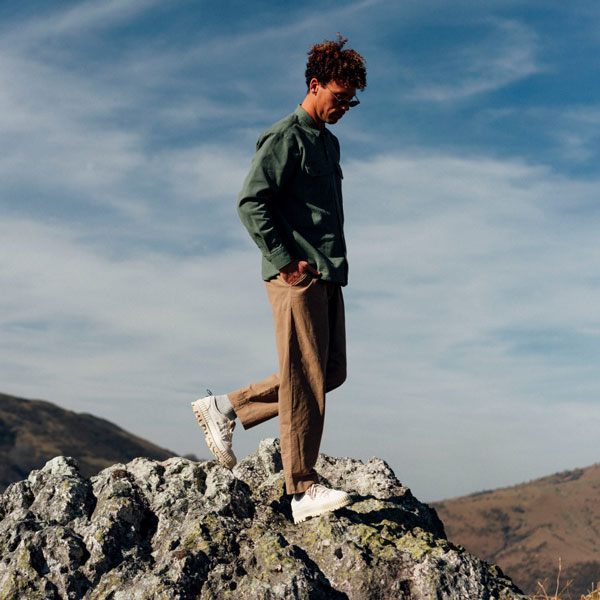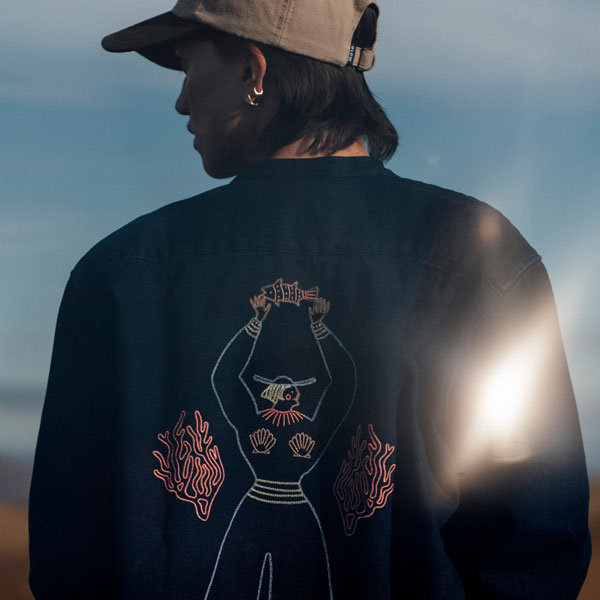OUR COMMITMENTS
Deeply conscious of environmental challenges and a true commitment to human well-being.
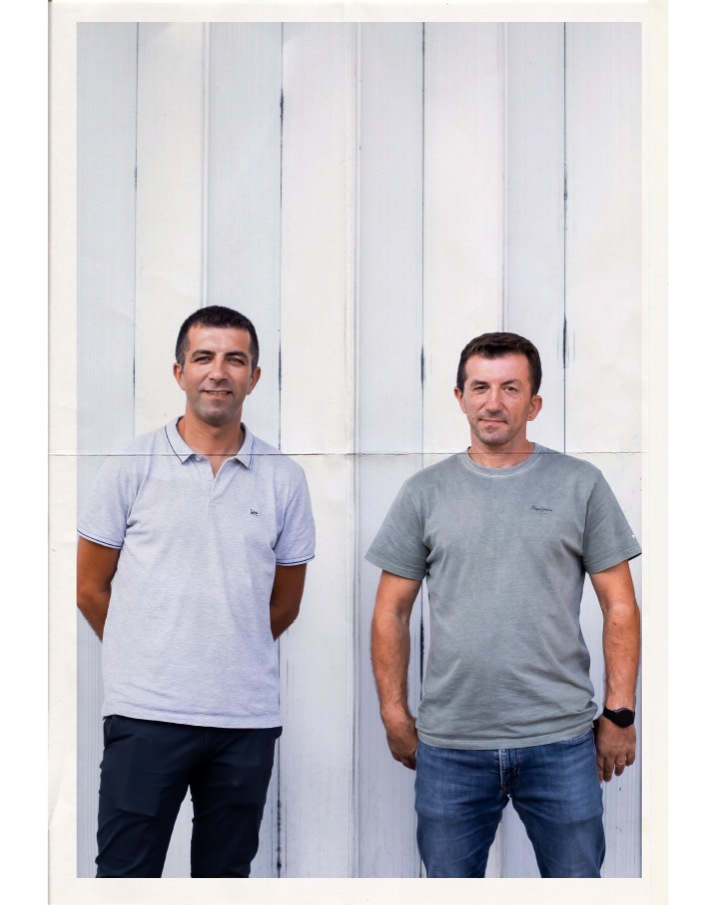
EUROPEAN
MANUFACTURING
01
In the picturesque region of Braga, Portugal, just a short distance from the ocean, we head there twice a year to finalize our collections.
The atmosphere is peaceful and rural, nestled among vineyards, hills, eucalyptus trees, lemon groves, quaint churches, and locals chatting at the corner café. The factories are all close to one another, though it's not unusual to get caught behind a tractor on the cobblestone roads, adding a little extra slowness, poetry, and authenticity to our stays.
The 5 family-run factories we work with prioritize the well-being of their employees, ensuring fair wages and safe working conditions.
It is always a pleasure to catch up with Miguel and Marco, our trusted advisors. As well as Vitor, Eugenia, and Pedro. With a positive spirit, they guide us, lend us their expertise, and help us address any challenges. In the evenings, we sometimes enjoy some great moments, with accordion music in the air, surrounded by their growing children.
Without them, OLOW wouldn't be where it is today.
Where are our clothes made?
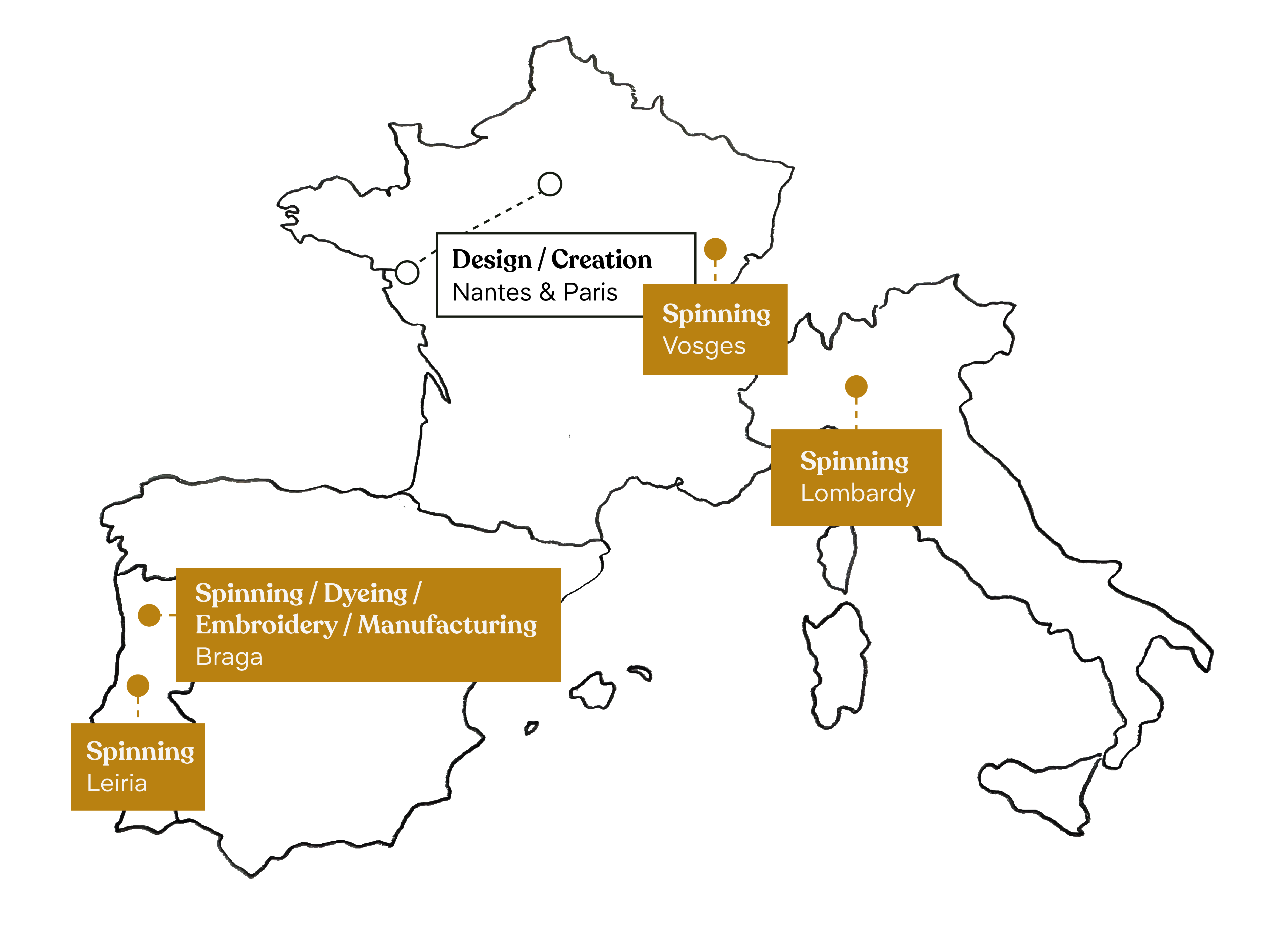
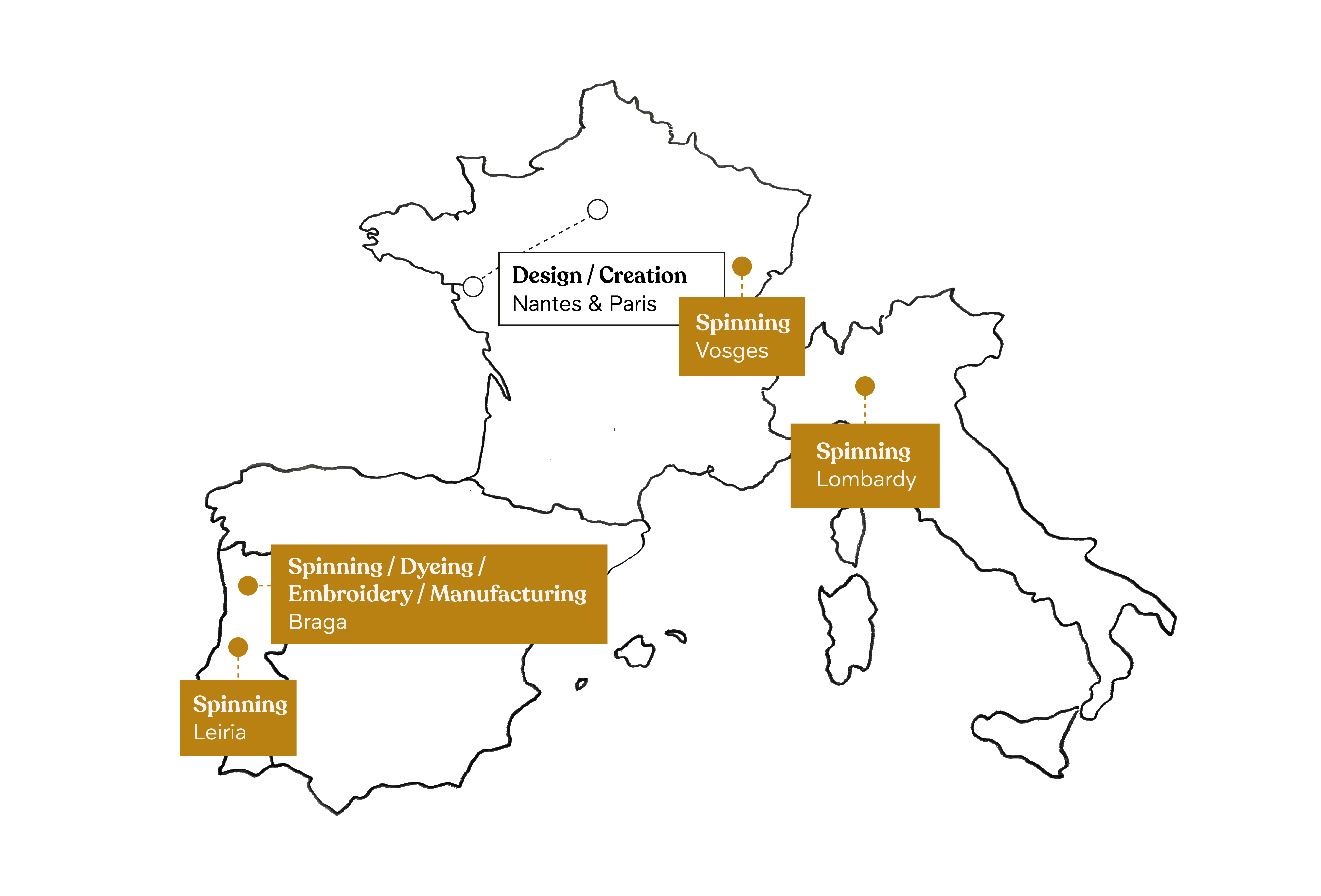
OUR MATERIALS
02
All of the fabrics we use are chosen with care, not just for their aesthetic appeal, but also based on a range of criteria, including durability, origin, and level of eco-friendliness.
We always favor organic cotton or linen, but also innovative and water-efficient materials such as hemp or nettle. For recycled polyester, we often opt for Seaqual, a unique fiber crafted from plastic retrieved from the Mediterranean Sea.
Though the focus often falls on the finished product, the spinning process is just as important. For this, we work exclusively with French partners or those from nearby regions like Portugal, Spain, and Italy. Companies with rich histories and a firm grip on their entire production process.

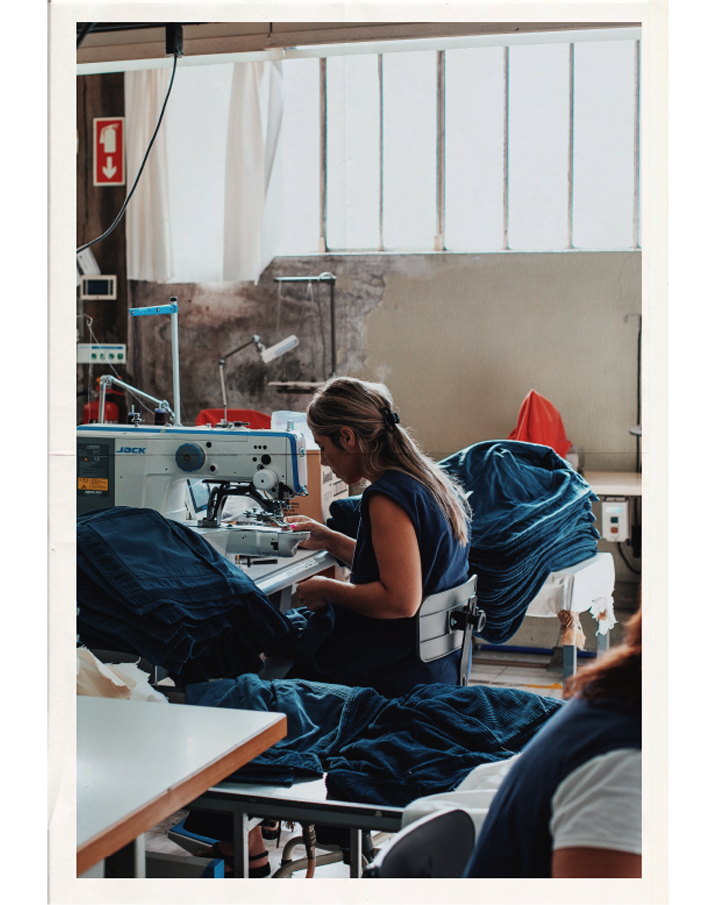
FAIR
PRICING
03
Our goal has always been to offer high-quality clothing, responsibly made, and at fair prices.
On one hand, this ensures that our factories can continue their operations and grow sustainably, maintaining their responsible production practices and quality of life.
On the other hand, it allows our brand to thrive and plan for the future while ensuring that a wide audience can enjoy our products without draining their wallets. This is all made possible when a brand chooses to adopt a fair and reasonable pricing model, avoiding unchecked profit at the expense of people and the planet.
SUPPORTING CAUSES
04
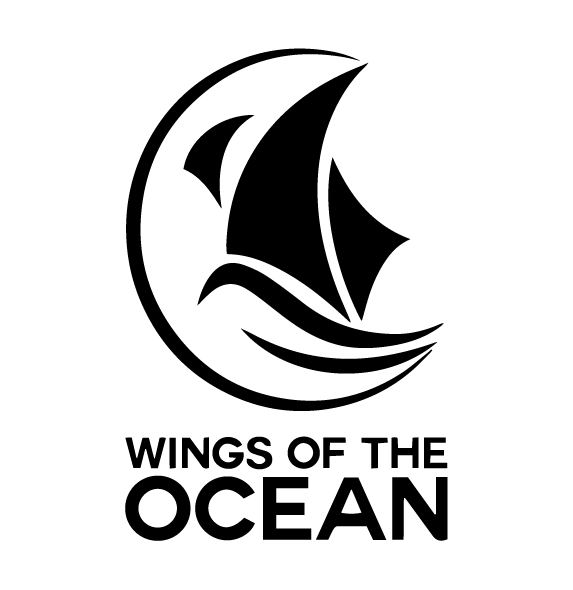
We are proud to financially support Wings of the Ocean, an association renowned for cleaning up the oceans and raising awareness about the devastating impact of marine plastic pollution.
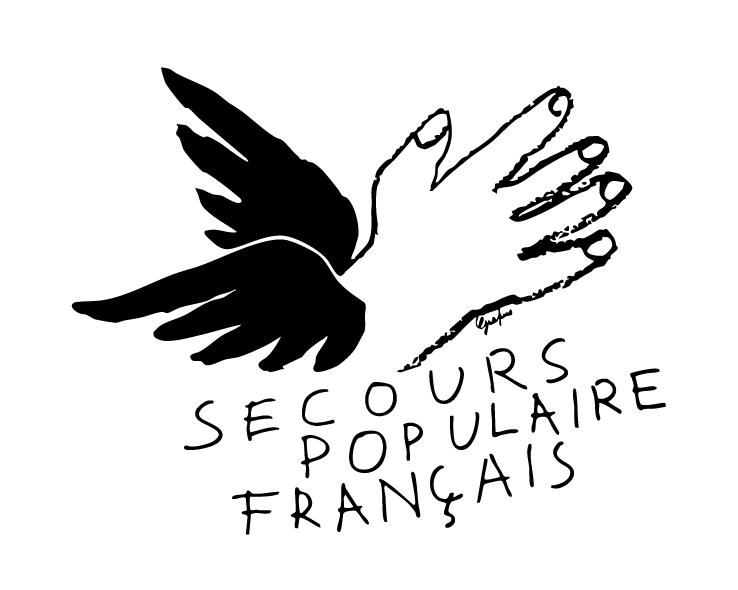
We’ve partnered with Secours Populaire Français on t-shirt sales to support their work, collaborating with artists during events like "Parages p(art)ages" in Nantes and "Mise en page" at Paris’ Le Bon Marché.
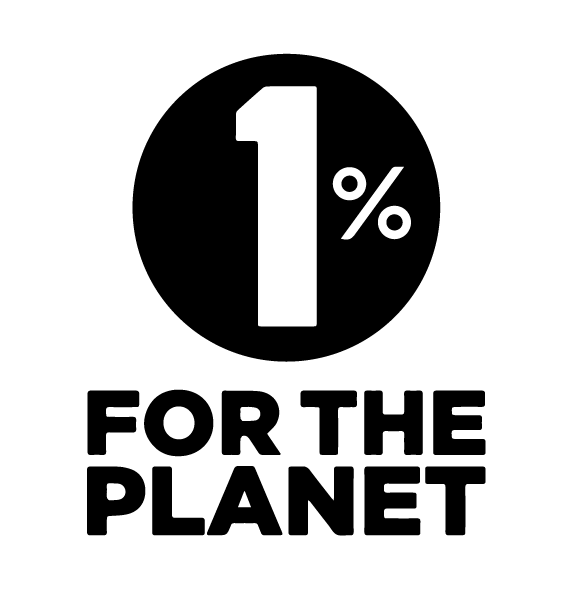
"1% for the Planet" is a global nonprofit that connects businesses with environmental organizations to facilitate impactful donations. Founded by Yvon Chouinard and Craig Mathews, member companies commit 1% of their annual sales to certified partners. For us, this supports Wings of the Ocean.
GROWTH AND INDEPENDENCE
« Remaining 100% independent is one of the most important pillars of our brand. From the very beginning, it was this need for freedom that pushed us to embark on the entrepreneurial journey, to stay unbound by investors, completely free to make our own choices without the pressure of revenue targets or growth objectives.
OLOW, in many ways, remains a small-scale artisanal business. We choose to work exclusively with friends or people we genuinely appreciate and set no boundaries when it comes to creativity in our collections. After all, growth is a subjective concept. Of course, evolving is essential, but endless zeros in the bank or opening OLOW shops all over the globe doesn’t align with our vision of what growth should be. We believe in a circular system, a responsible model where everyone benefits: the brand (us), the manufacturers, the retailer partners, and, of course, the customer (you).
Our strategy is simple : how can we sell clothing made from sustainable materials, crafted in Europe, at a price that feels morally fair? There’s only one way: operate with low margins. Just enough to sustain ourselves and dream up new projects. We may never be financially rich...
And so what? »
Valentin Porcher
Co-founder
